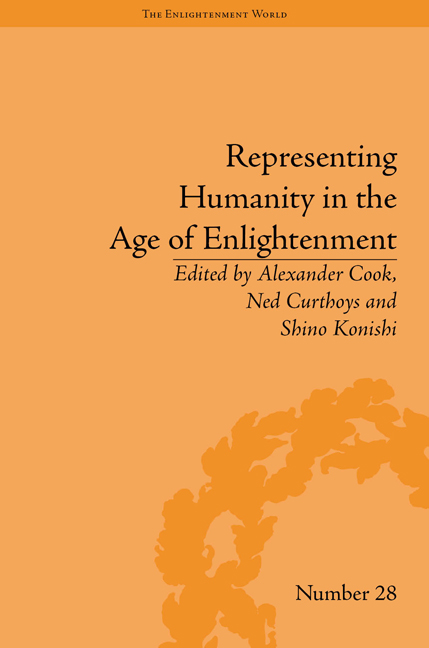Book contents
- Frontmatter
- CONTENTS
- Acknowledgements
- Dedication
- List of Contributors
- List of Figures
- The Science and Politics of Humanity in the Eighteenth Century: An Introduction
- Part I Humanity and the Civilizing Process
- Part II Encountering Humanity
- Part III The Limits of Humanity
- 11 Fictions of Human Community
- 12 Fairy-Tale Humanity in French Libertine Fiction of the Mid-Eighteenth Century
- 13 Philosophical Anthropology and the Sadean ‘System’ or, Sade and the Question of Enlightenment Humanism
- Notes
- Index
12 - Fairy-Tale Humanity in French Libertine Fiction of the Mid-Eighteenth Century
from Part III - The Limits of Humanity
- Frontmatter
- CONTENTS
- Acknowledgements
- Dedication
- List of Contributors
- List of Figures
- The Science and Politics of Humanity in the Eighteenth Century: An Introduction
- Part I Humanity and the Civilizing Process
- Part II Encountering Humanity
- Part III The Limits of Humanity
- 11 Fictions of Human Community
- 12 Fairy-Tale Humanity in French Libertine Fiction of the Mid-Eighteenth Century
- 13 Philosophical Anthropology and the Sadean ‘System’ or, Sade and the Question of Enlightenment Humanism
- Notes
- Index
Summary
By focusing on libertine fairy tales, this chapter confronts a paradox. How was it possible for libertine writing in eighteenth-century France to tell stories in which supernatural creatures played a decisive role in the course of narrative? One of the characteristics of this worldly libertine milieu was that it tended to mock the devout and ironize about elaborate systems of religious belief. Yet libertine fairy tales seem to find a place for supernatural creatures without entailing any commitment to, or even interest in, theological thinking. In these stories, the actions and interests of supernatural creatures are continually referred back to the world of human activity. Supernatural qualities are domesticated, so to speak, by being measured against the standard of civilized human behaviour. It can be said that the supernatural in these stories is in no way transcendent, since it is engaged in a worldly conversation with the human.
One of the most successful literary genres in mid-eighteenth century France was the conte, or tale, and its success was marked by the variety of texts claiming the genre as their own. Included in the broad range of contes were of course such works as Voltaire's contes philosophiques, which continue to draw the attention of historians of ideas. But there were in addition many tales that might now be thought intellectually trivial.
- Type
- Chapter
- Information
- Representing Humanity in the Age of Enlightenment , pp. 161 - 172Publisher: Pickering & ChattoFirst published in: 2014

